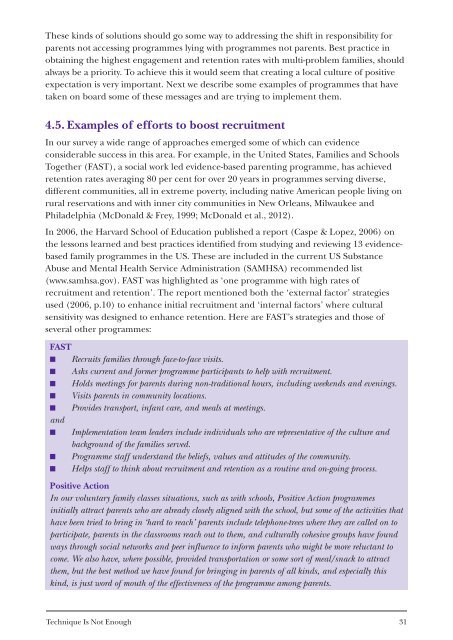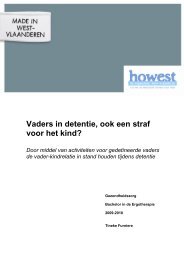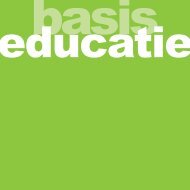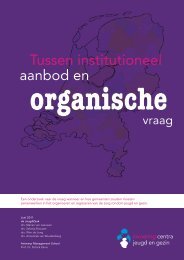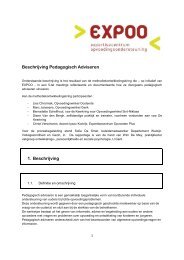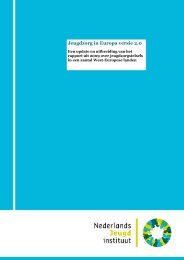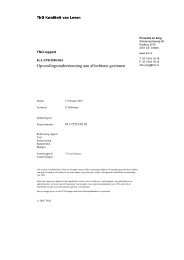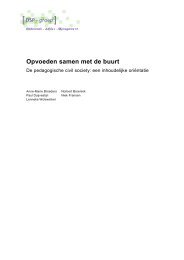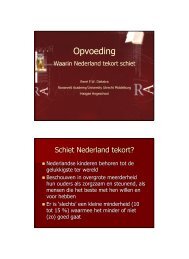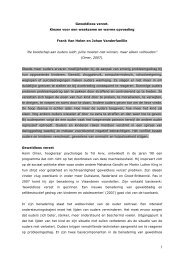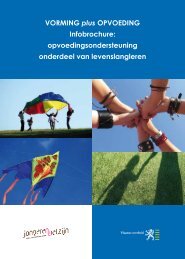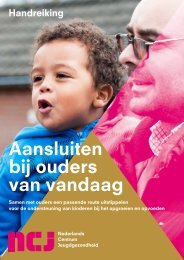Technique Is Not Enough (TINE) - British Psychological Society
Technique Is Not Enough (TINE) - British Psychological Society
Technique Is Not Enough (TINE) - British Psychological Society
- No tags were found...
You also want an ePaper? Increase the reach of your titles
YUMPU automatically turns print PDFs into web optimized ePapers that Google loves.
These kinds of solutions should go some way to addressing the shift in responsibility forparents not accessing programmes lying with programmes not parents. Best practice inobtaining the highest engagement and retention rates with multi-problem families, shouldalways be a priority. To achieve this it would seem that creating a local culture of positiveexpectation is very important. Next we describe some examples of programmes that havetaken on board some of these messages and are trying to implement them.4.5. Examples of efforts to boost recruitmentIn our survey a wide range of approaches emerged some of which can evidenceconsiderable success in this area. For example, in the United States, Families and SchoolsTogether (FAST), a social work led evidence-based parenting programme, has achievedretention rates averaging 80 per cent for over 20 years in programmes serving diverse,different communities, all in extreme poverty, including native American people living onrural reservations and with inner city communities in New Orleans, Milwaukee andPhiladelphia (McDonald & Frey, 1999; McDonald et al., 2012).In 2006, the Harvard School of Education published a report (Caspe & Lopez, 2006) onthe lessons learned and best practices identified from studying and reviewing 13 evidencebasedfamily programmes in the US. These are included in the current US SubstanceAbuse and Mental Health Service Administration (SAMHSA) recommended list(www.samhsa.gov). FAST was highlighted as ‘one programme with high rates ofrecruitment and retention’. The report mentioned both the ‘external factor’ strategiesused (2006, p.10) to enhance initial recruitment and ‘internal factors’ where culturalsensitivity was designed to enhance retention. Here are FAST’s strategies and those ofseveral other programmes:FAST■ Recruits families through face-to-face visits.■ Asks current and former programme participants to help with recruitment.■ Holds meetings for parents during non-traditional hours, including weekends and evenings.■ Visits parents in community locations.■ Provides transport, infant care, and meals at meetings.and■ Implementation team leaders include individuals who are representative of the culture andbackground of the families served.■ Programme staff understand the beliefs, values and attitudes of the community.■ Helps staff to think about recruitment and retention as a routine and on-going process.Positive ActionIn our voluntary family classes situations, such as with schools, Positive Action programmesinitially attract parents who are already closely aligned with the school, but some of the activities thathave been tried to bring in ‘hard to reach’ parents include telephone-trees where they are called on toparticipate, parents in the classrooms reach out to them, and culturally cohesive groups have foundways through social networks and peer influence to inform parents who might be more reluctant tocome. We also have, where possible, provided transportation or some sort of meal/snack to attractthem, but the best method we have found for bringing in parents of all kinds, and especially thiskind, is just word of mouth of the effectiveness of the programme among parents.<strong>Technique</strong> <strong>Is</strong> <strong>Not</strong> <strong>Enough</strong> 31


